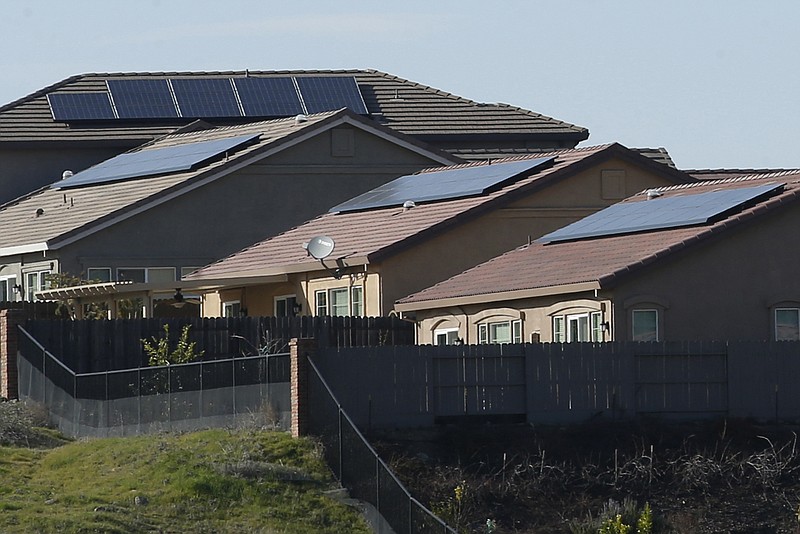Arkansas’ House of Representatives approved legislation Thursday that will slice compensation for solar users beginning in 2025 over opposition led by commercial and industrial electric customers in the state.
Senate Bill 295 was approved Tuesday by the Senate and now goes to the governor to sign to become law.
The legislation lowers compensation for solar users to wholesale rates that electric utilities pay other power providers — a difference of about 5 cents per kilowatt hour. Utilities now pay retail rates, meaning one-to-one compensation, to solar users, who are credited at the same amount the electric providers charge to deliver power to homes and businesses.
The compensation policy is commonly known as net-metering. Entergy Arkansas, the state's largest electric utility, says its current retail rate is about 11 cents and wholesale ranges from 4 to 6 cents. Solar users are credited for excess power they generate and return to the electric grid for use by all customers in Arkansas.
SB 295 seeks to “prevent cost-shifting and ensure fairness to all ratepayers,” according to the title of the legislation, sponsored by Rep. Lanny Fite, R-Benton, and Sen. Jonathan Dismang, R-Searcy, in the upper chamber. Proponents contend net-metering puts more of a burden on non-solar users to pay for investments that support the state’s electric-grid infrastructure.
